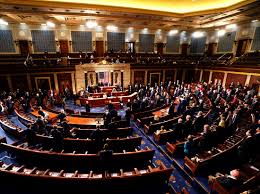
Etsy Introduces New AI-Generated Item Guidelines in Seller Policy
Generative AI
Zaker Adham
08 October 2024
31 July 2024
|
Zaker Adham
Summary
Summary
OpenAI has announced its support for three significant Senate bills that aim to shape the federal government's approach to artificial intelligence. These endorsements come at a crucial time as AI legislation gains momentum in Congress.

One of the endorsed bills, the Future of AI Innovation Act, seeks to formally establish the United States AI Safety Institute. This federal body would be responsible for setting standards and guidelines for AI models. Anna Makanju, OpenAI’s Vice President of Global Affairs, emphasized in a LinkedIn post that OpenAI has long supported the institute's mission to ensure safe development and deployment of advanced AI systems. Makanju noted that this bill would provide the necessary Congressional backing to minimize potential risks posed by AI technologies.
OpenAI also supports the NSF AI Education Act and the CREATE AI Act. These bills focus on providing federal scholarships for AI research and integrating AI educational resources into colleges and K-12 schools.
OpenAI's Strategic Endorsement
Why is OpenAI, the creator of ChatGPT, endorsing these U.S. laws now? According to Makanju, OpenAI believes that the government has a vital role in ensuring AI's safety and accessibility. Moreover, with OpenAI leading the world in generative AI and achieving an $86 billion valuation through partnerships with Microsoft and Apple, regulatory scrutiny is inevitable. These endorsements are a strategic move to build goodwill with lawmakers and secure a seat at the table for future AI regulation discussions.
An OpenAI spokesperson referred TechCrunch to Makanju’s LinkedIn post for further comments.
Collaborative Efforts with Major Tech Players
On Monday, OpenAI, along with Microsoft, Meta, Palantir, Cohere, Amazon, and others, signed a letter supporting the AI Safety Institute. The Future of AI Innovation Act mandates collaboration between the institute and private and public organizations to develop AI standards. The act also requires federal agencies to create public datasets that private companies might not develop independently.
The timing of OpenAI's endorsements is strategic, with two of these bills scheduled for discussion in an Executive Session on Wednesday morning. This move highlights the delicate balance AI companies must maintain to stay in favor with lawmakers who could significantly impact their future operations.

Generative AI
Zaker Adham
08 October 2024

Generative AI
Zaker Adham
06 October 2024

Generative AI
Zaker Adham
02 October 2024

Generative AI
Zaker Adham
21 September 2024